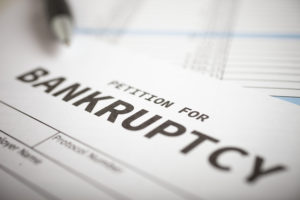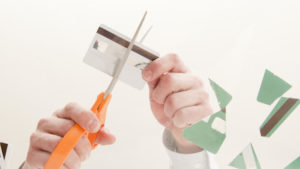Bankruptcy: Should You Consider Filing When You Face Foreclosure?
When a lender decides to foreclose on your property, where do you turn? Filing for bankruptcy may not seem like the obvious answer, but it might be a viable solution in some cases. Here’s how these concepts all add up under Wisconsin law.
Foreclosure Fundamentals
Foreclosure is when you are behind in mortgage payments and a bank, loan servicer or other lending institution decides it’s going to seize your property. Thanks to the lending contract you signed, they have the right to grab your home, office or other asset and sell it for the cash.
Of course, there are some limits to this power. Banks usually only foreclose when you’ve missed three (3) payments or more. If it looks like you’re not going to pay, then the lender will want to cut its losses.
Bankruptcy As a Self-defense Mechanism
The glaring problem with foreclosure actions is that they don’t always leave consumers with room for error. Lenders can be quite aggressive about recovering their losses and fail to consider the human impacts.
Bankruptcy is an effective last line of defense because it instantly implements an automatic stay. This puts a halt to creditor actions such as
- Foreclosure,
- Collections,
- Attempts to “obtain possession of” or “exercise control over” your estate properties,
- Lawsuits against you,
- Repossession, and
- Utility Shut-off
What Happens Next?
After a bankruptcy filing, the automatic stay will remain active until the case wraps up in a few months. Life doesn’t always play out so perfectly, however. If a lender files a motion to lift, or cancel, the automatic stay, then your breather might be cut short.
Are creditors trying to make things tougher? The lender just wants to get its money back because you are behind in mortgage payments. Reducing the length of the stay makes it possible to sell your property earlier.
Upholding the Automatic Stay
Fortunately, you can fight back. When lenders try to get stays canceled, they typically make the argument that they’re losing money. You might counter by
- Showing that a mortgage’s equity, or property value minus lien balance, is high enough to cover the lender’s losses, or
- Providing the lender with court-approved adequate protection, such as interest-only cash payments, during the case.
Making a Smart Choice
When lenders foreclose, families can lose their homes and the lifestyles they’re used to. Professionals might have to give up the vehicles that are critical to their careers.
Foreclosure cases can be tricky to predict. Bankruptcy may let consumers divert bad situations toward better outcomes. It doesn’t stop the foreclosure forever, but if you’re behind in mortgage payments, putting things on hold could help you get back to a state of financial balance.
Want to learn more about how bankruptcy types like Chapter 7 and Chapter 13 might help you push back and even stop foreclosure until you regain your footing? Talk to bankruptcy attorney Michael Burr at the Burr Law Office.


 While the final outcome of filing for Chapter 7 or Chapter 13 is intended to be positive, there are negatives that come with it. If you decide to file, here’s the bad news that you can expect:
While the final outcome of filing for Chapter 7 or Chapter 13 is intended to be positive, there are negatives that come with it. If you decide to file, here’s the bad news that you can expect: You may be wondering, how or why you’d get a credit card after bankruptcy. As for how, once you file for bankruptcy there’s a good chance you’ll receive new offers for credit cards. While it may seem odd that credit card companies offer credit to people who’ve previously filed for bankruptcy, there are actually creditors who target this high-risk pool. Why? Because they charge higher interest rates and fees, and with these higher fees it’s profitable for them.While the higher rates can seem overwhelming, the opportunity to reestablish your credit rating is actually a plus. If you’re able to consistently pay off your credit card bill each month, it can help improve your credit rating. However, the last thing you want to do is get caught up in more debt. But if you have the money and commitment to paying your bills in full each month, this can be a good option.
You may be wondering, how or why you’d get a credit card after bankruptcy. As for how, once you file for bankruptcy there’s a good chance you’ll receive new offers for credit cards. While it may seem odd that credit card companies offer credit to people who’ve previously filed for bankruptcy, there are actually creditors who target this high-risk pool. Why? Because they charge higher interest rates and fees, and with these higher fees it’s profitable for them.While the higher rates can seem overwhelming, the opportunity to reestablish your credit rating is actually a plus. If you’re able to consistently pay off your credit card bill each month, it can help improve your credit rating. However, the last thing you want to do is get caught up in more debt. But if you have the money and commitment to paying your bills in full each month, this can be a good option. Constant calls from collection agencies can be extremely stressful. If you’ve ever received these calls, you may have noticed that the collection agents can be very harsh, and even threatening. And the longer you owe creditors, the longer the calls go on for.However, the good news is that once you file for bankruptcy, creditors are no longer legally allowed to make such calls. In addition, creditors are no longer able to sue you, or repossess your possessions.
Constant calls from collection agencies can be extremely stressful. If you’ve ever received these calls, you may have noticed that the collection agents can be very harsh, and even threatening. And the longer you owe creditors, the longer the calls go on for.However, the good news is that once you file for bankruptcy, creditors are no longer legally allowed to make such calls. In addition, creditors are no longer able to sue you, or repossess your possessions.
